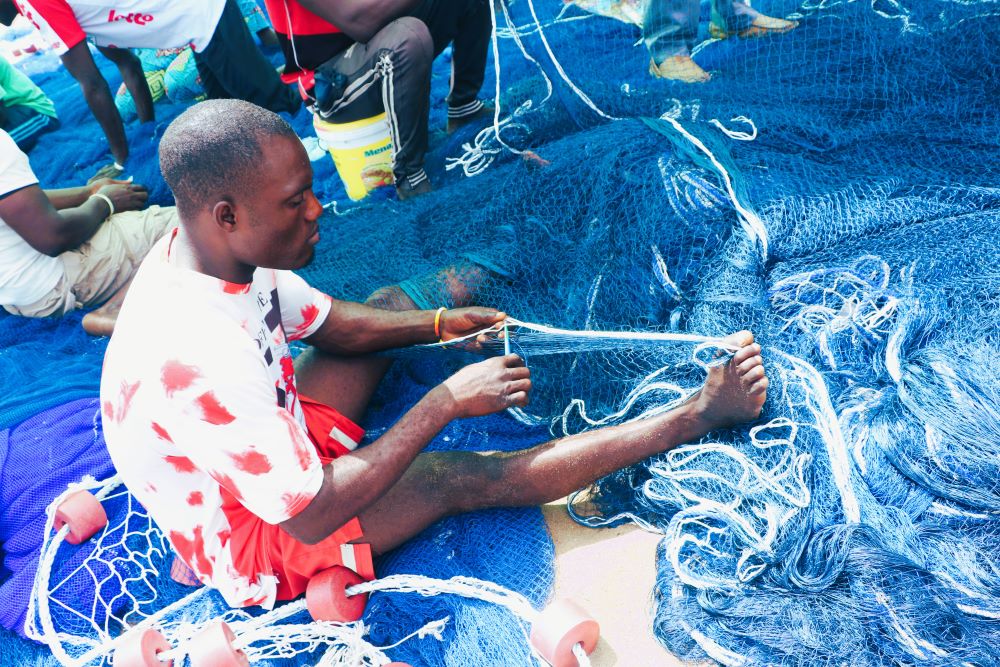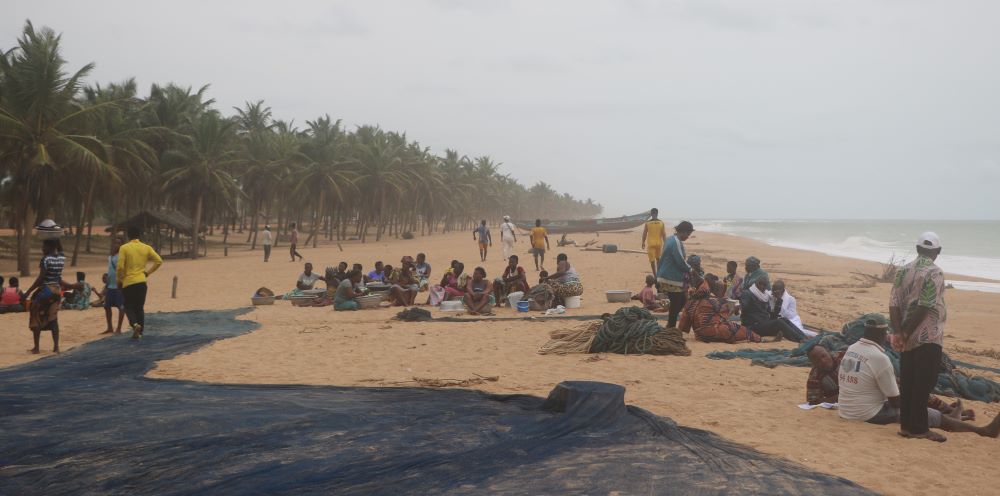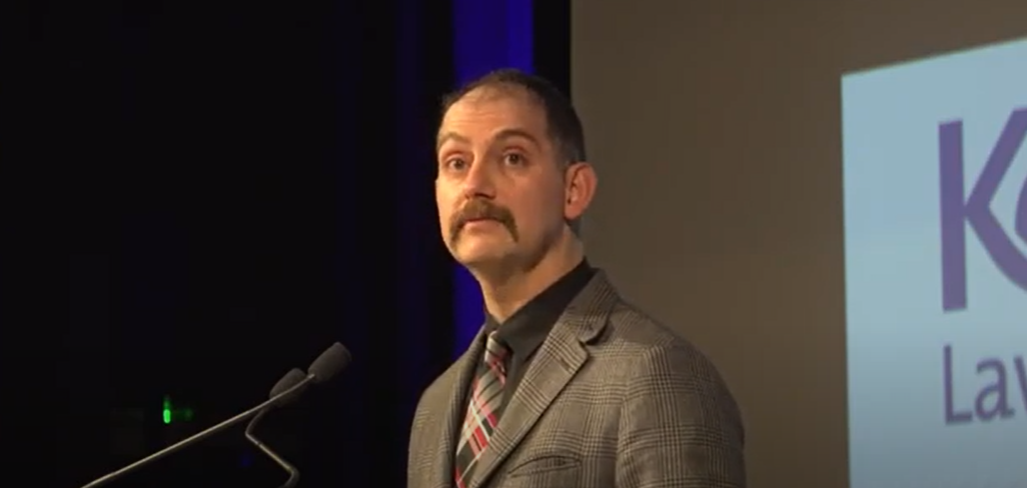In January 2024, the United Nations Special Rapporteur on the right to food presented his report on small-scale fishing. This document, consulted by CAOPA, highlights the need to protect the rights of small-scale fishermen, fishery workers and indigenous peoples in the context of climate change.
In this report, submitted to the Human Rights Council in accordance with its resolution 43/11, Michael Fakhri highlights the vital importance of guaranteeing biodiversity and protecting aquatic ecosystems to ensure the right to food for all, despite the challenges posed by climate change. This framework stresses that small-scale fishermen and fish workers are key players in providing food for millions of people, particularly in coastal and riverine regions.
Impact of climate change on fishing
Climate change is having a significant impact on small-scale fishing, particularly through overfishing, the degradation of ecosystems and the threat to food security. Overfishing, which has tripled in the last fifty years, is endangering fish stocks and undermining the livelihoods of millions of people. Climate change is also altering fish migration patterns, forcing fishermen to adapt and diversify their fishing practices.
Rights of indigenous peoples and gender in fisheries
Indigenous peoples depend heavily on aquatic resources for their livelihoods and food security. Around 27 million indigenous people worldwide rely on fishing for their survival. Women, although active in various aspects of fishing, face discrimination and stigmatisation in the sector. Their contribution is often undervalued and they face precarious and dangerous working conditions.
Working conditions and safety of fishing industry workers

Fishing workers have one of the most dangerous jobs in the world, according to the International Labour Organisation (ILO). They face high occupational risks, not least because of poor and dangerous working conditions. Fatal accidents are frequent at sea, and workers are exposed to dangers linked to the instability of fishing platforms and exposure to toxic chemicals.
Governance and environmental challenges
Overcapacity and overfishing are major challenges that threaten the sustainability of marine resources. Inadequate management of conservation initiatives and offshore exploitation are having devastating impacts on marine ecosystems and the livelihoods of coastal communities. In addition, illegal, unreported and unregulated fishing exacerbates the pressure on marine resources and undermines the stability of ecosystems.
Initiatives for a blue transformation and sustainable finance
The FAO promotes a blue transformation approach that aims to reconcile economic interests with human rights and environmental sustainability. This approach seeks to increase the contribution of aquatic food systems to a healthy and nutritious diet, while ensuring responsible environmental management and inclusive growth. However, the emergence of blue finance poses challenges in terms of transparency and respect for human rights, particularly for coastal communities and small-scale fishermen.
Some conclusions and recommendations
- oceans and rivers as sources of life
The oceans and rivers are crucial to the survival of humanity. Governments and companies must stop exploiting them commercially and treat them as vital to life.
- Recognition of the needs of small-scale fishermen
Policies must focus on small-scale fishermen, who are essential to post-pandemic recovery and the transformation of the food system. States must recognise the importance of small-scale fishermen, indigenous peoples and fishery workers, consulting them in a meaningful way and guaranteeing their participation in decision-making processes.
- Full definition of small-scale fishermen
An exhaustive definition of small-scale fishermen must be drawn up, taking into account all aspects of their activity, including processing and marketing, with particular attention to gender issues.
- Human rights-based approaches to fisheries management
Regional fisheries management organisations must adopt approaches based on human rights, allowing genuine participation by small-scale fishermen, fishworkers and indigenous peoples.
- Respect for land and indigenous rights
States must respect, protect and guarantee the customary land rights of small-scale fishermen and indigenous peoples, in accordance with international guidelines and declarations on human rights.
- Protecting aquatic ecosystems
 States must protect and restore aquatic ecosystems, taking account of local and indigenous knowledge, and ensuring the meaningful participation of small-scale fishermen, fishery workers and indigenous peoples in decision-making processes.
States must protect and restore aquatic ecosystems, taking account of local and indigenous knowledge, and ensuring the meaningful participation of small-scale fishermen, fishery workers and indigenous peoples in decision-making processes.
- Fairness and market stability
Social protection schemes must be established to include all those involved in fishing. Small-scale fishermen must have better access to finance, market information and infrastructure. In addition, it is crucial to guarantee decent working conditions and to combat contemporary forms of slavery and child labour.
- FAO support and national action plan
The FAO and other international organisations should give greater priority to protecting small-scale fishermen and indigenous peoples, while supporting the implementation of national action plans for small-scale fishing.
- Review of blue economy policies
States must protect small-scale fishermen from competing sectors of the blue economy, regulate fishing using approaches based on human rights, and be prudent in the development of aquaculture.
- Transparency and corporate responsibility
Companies must be required to conduct their activities in a transparent and accountable manner, reporting on human rights abuses and complying with international human rights standards.
These recommendations provide a framework for more sustainable and equitable management of marine resources and the livelihoods of communities dependent on small-scale fishing, while respecting human rights and biodiversity.
Read the full report HERE!
Summary Aliou DIALLO


